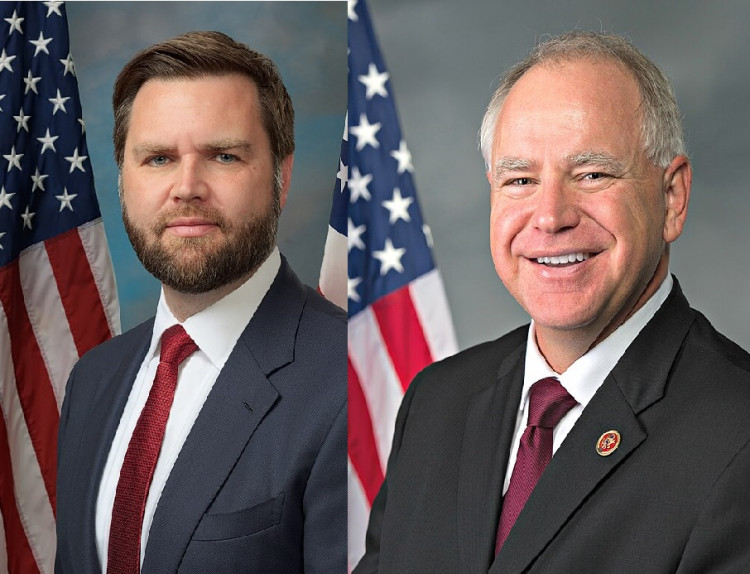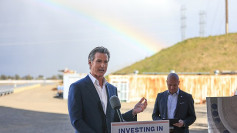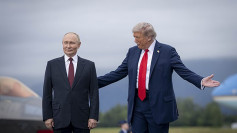As the countdown to the 2024 presidential election continues, Democratic Vice Presidential nominee Tim Walz and Republican nominee JD Vance are poised for a critical debate that could have significant ramifications for both campaigns. Scheduled for Tuesday at a CBS-hosted event in New York, this debate marks a crucial moment in a tightly contested race, just five weeks before voters head to the polls.
Polls indicate a razor-thin margin between the two major party presidential candidates, Kamala Harris and Donald Trump. While Trump has so far resisted calls for a second presidential debate, the spotlight now shifts to the Walz-Vance faceoff, which could play a pivotal role in influencing undecided voters. According to Robert Rowland, a former national champion debater, the debate will highlight the "core political conflict" over which candidate can better represent the interests of working-class Americans.
The contrasting personas of Walz and Vance promise a heated exchange. Walz, the 60-year-old governor of Minnesota, has previously characterized Vance as "weird," positioning him as a significant player in Project 2025-a conservative initiative aimed at a sweeping overhaul of American governance. This initiative encompasses aggressive measures against immigration, the rollback of LGBTQ+ and abortion rights, and significant changes to environmental policy.
Vance, 40, has embraced his role as Trump's "attack dog," often employing culture war rhetoric aimed at galvanizing the MAGA base. However, his recent approval ratings have dipped, largely due to controversies surrounding derogatory comments about childless women, whom he labeled "childless cat ladies," and his promotion of a debunked rumor regarding Haitian immigrants in Ohio. Vance has faced backlash for these statements, yet he maintains that they serve to spotlight the immigration concerns affecting American communities.
As the candidates prepare for the 90-minute debate, the absence of real-time fact-checking by moderators Norah O'Donnell and Margaret Brennan adds another layer of complexity. Unlike the previous Harris-Trump debate, where fact-checking was actively integrated, both candidates will be expected to hold each other accountable for inaccuracies, which could lead to explosive exchanges.
While Vance enters the debate with a controversial track record, Walz is aiming to capitalize on his relatively favorable polling figures. The Minnesota governor has adopted a more subdued approach since being selected as Harris's running mate, limiting his media appearances and steering clear of direct confrontations with Vance until now. Nevertheless, he has admitted to feeling nervous about the debate, revealing his self-doubt in conversations with aides.
Historically, vice-presidential debates have had a muted impact on election outcomes, but they often produce memorable moments that resonate with voters. Past debates, like Kamala Harris's notable rebuttal to Mike Pence in 2020, demonstrate the potential for a single exchange to influence public perception. This time, Walz will have the opportunity to showcase his relatable persona, while Vance may aim to reinforce his narrative as a champion of the American working class.
One of the anticipated flashpoints of the debate will be immigration policy, particularly in light of Vance's controversial statements about Haitian migrants. As he faces questions from the moderators, Vance's previous claims could come back to haunt him, especially given the heated atmosphere surrounding immigration in the current political landscape. In his defense, Vance has insisted that his statements are meant to bring attention to the challenges faced by Americans in the face of what he perceives as an immigration crisis.
On the other hand, Walz's military service record may become a focal point for Vance's attacks. Critics have pointed to ambiguities in Walz's claims regarding his time in the National Guard, particularly his assertions about carrying weapons similar to those used in combat. With Vance himself being a retired Marine, the dynamic of their exchanges on this topic will be crucial.
As both candidates strive to portray themselves as representatives of Midwestern values, they are also navigating deeper social narratives. Vance has been scrutinized for his past comments that some interpret as dismissive of women, while Walz has positioned himself as a compassionate leader. This election cycle has been marked by a growing divide in gender perceptions, with male voters increasingly leaning toward conservative ideals as reflected in recent polling data.
Amidst the backdrop of economic concerns and a polarized electorate, the stakes are high for both candidates. Walz must balance the need to articulate Harris's agenda while appealing to a broad spectrum of voters, including those disillusioned by the current administration. Meanwhile, Vance is expected to frame his arguments around a return to traditional values and economic prosperity, contrasting the current administration's policies with the perceived successes of the Trump era.






